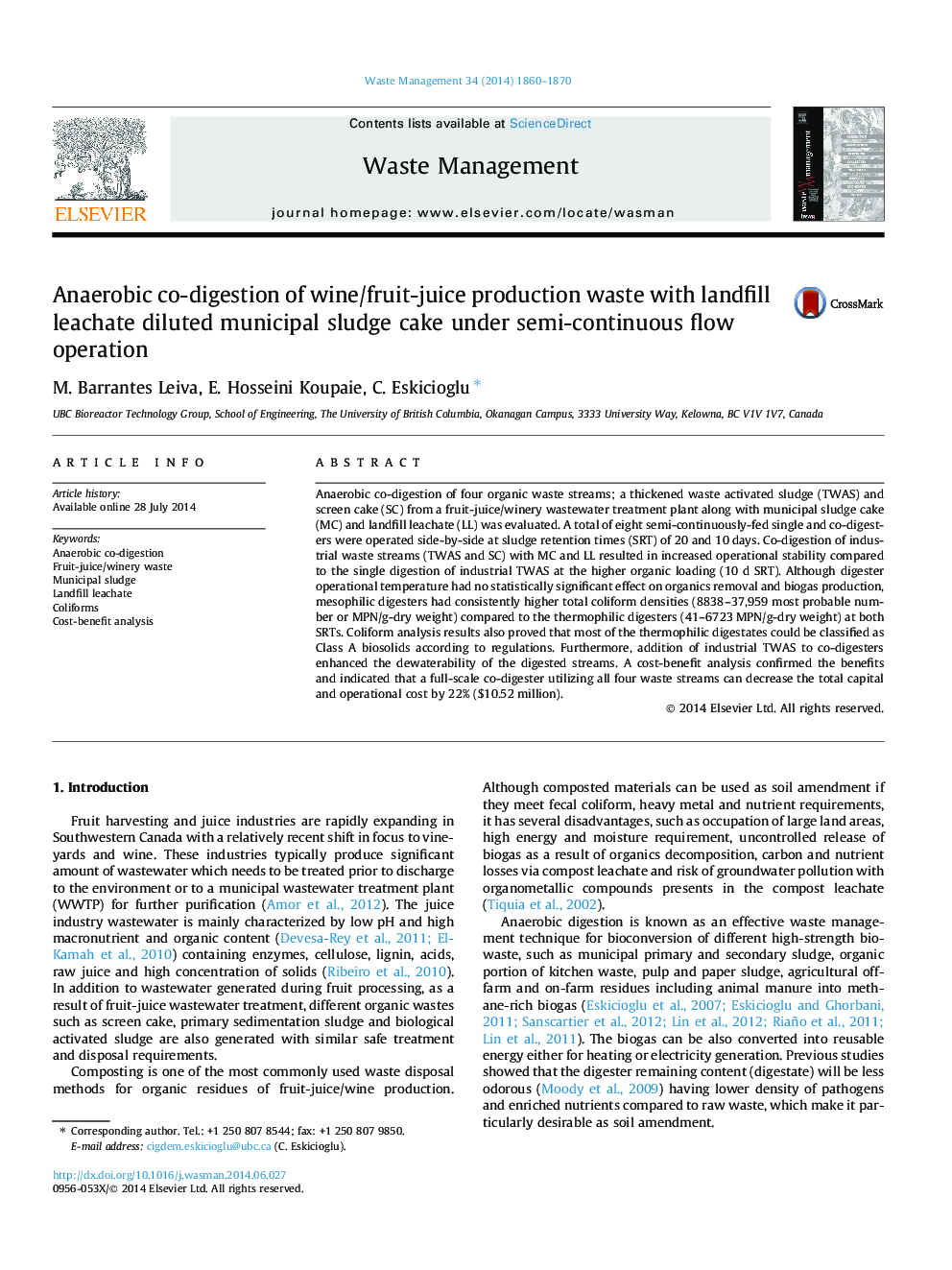| کد مقاله | کد نشریه | سال انتشار | مقاله انگلیسی | نسخه تمام متن |
|---|---|---|---|---|
| 4471529 | 1315031 | 2014 | 11 صفحه PDF | دانلود رایگان |
• Anaerobic co-digestion of wine/fruit-juice waste, leachate and municipal sludge was studied.
• Co-digesters achieved higher stability and organic removals than single-digesters.
• Capital and operating cost could be decreased by 22% using a co-digestion scenario.
• Addition of industrial to municipal waste enhanced dewaterability of digestate.
• Thermophilic digestates could be qualified as Class A biosolids according to regulations.
Anaerobic co-digestion of four organic waste streams; a thickened waste activated sludge (TWAS) and screen cake (SC) from a fruit-juice/winery wastewater treatment plant along with municipal sludge cake (MC) and landfill leachate (LL) was evaluated. A total of eight semi-continuously-fed single and co-digesters were operated side-by-side at sludge retention times (SRT) of 20 and 10 days. Co-digestion of industrial waste streams (TWAS and SC) with MC and LL resulted in increased operational stability compared to the single digestion of industrial TWAS at the higher organic loading (10 d SRT). Although digester operational temperature had no statistically significant effect on organics removal and biogas production, mesophilic digesters had consistently higher total coliform densities (8838–37,959 most probable number or MPN/g-dry weight) compared to the thermophilic digesters (41–6723 MPN/g-dry weight) at both SRTs. Coliform analysis results also proved that most of the thermophilic digestates could be classified as Class A biosolids according to regulations. Furthermore, addition of industrial TWAS to co-digesters enhanced the dewaterability of the digested streams. A cost-benefit analysis confirmed the benefits and indicated that a full-scale co-digester utilizing all four waste streams can decrease the total capital and operational cost by 22% ($10.52 million).
Journal: Waste Management - Volume 34, Issue 10, October 2014, Pages 1860–1870
